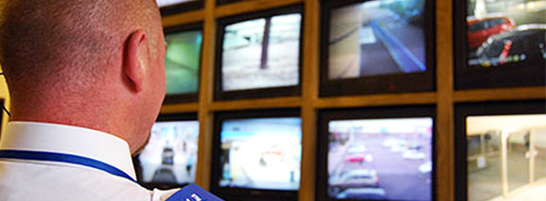


- #Security camera monitoring verification
- #Security camera monitoring code
- #Security camera monitoring professional
All existing uses of video monitoring and recording shall be brought into compliance with this policy within 12 months of the approval of this policy.The existence of this policy does not imply or guarantee that cameras will be constantly monitored in real time.Monitoring of residential rooms shared by more than one resident or suite common areas is not permitted under this policy without authorization from all residents of the subject suite or room. Therefore, monitoring for safety and security purposes will not be used in residential hallways and lounges unless the chief of police, in consultation with the director of Residential Life, determines that a specific safety/security risk exists. Students have a greater expectation of privacy in their personal residential rooms/suites and in the hallways and lounges of residential facilities. Monitoring shall be limited to uses that do not violate the reasonable expectation to privacy.Monitoring based on the characteristics and classifications contained in the nondiscrimination policy (e.g., race, gender, sexual orientation, national origin, disability, etc.) is strictly prohibited. Monitoring will be conducted in a manner consistent with all existing university policies, including the nondiscrimination policy, the sexual harassment policy and other relevant policies.Information obtained through monitoring will only be released when approved by the chief of police of the Washington University Police Department (WUPD), the director of Protective Services of the Washington University School of Medicine (WUSM), and the executive vice chancellor for administration, or any of their designees according to procedures established in this policy.
#Security camera monitoring code
Violations of the code of procedures set forth under Section III below may result in disciplinary action consistent with the rules and regulations governing employees of the university. Personnel involved in monitoring will be appropriately trained and supervised in the responsible use of this technology. CCTV monitoring will be conducted in a professional, ethical and legal manner.Investigation of criminal activity and serious disciplinary activity, such as, for example, sabotage of research projects, in accordance with this policy.Īny diversion of security technologies for purposes other than the safety and security purposes contemplated by this policy is prohibited.Patrol of common areas and areas accessible to the public, including transit stops, parking lots, public streets and pedestrian walks and.
#Security camera monitoring verification
Verification of alarms and access control systems.Protection of university-owned and/or operated property and buildings, including building perimeters, entrances and exits, lobbies and corridors, receiving docks, special storage areas, laboratories, and cashier locations.Protection of individuals, including students, faculty, staff and visitors.Safety and security purposes include, but are not limited to: The purpose of CCTV monitoring is to deter crime and to protect the safety and property of the university community.This policy applies to all students, faculty, staff, schools and departments within the university community.* The purpose of this policy is to provide guidelines for the use of CCTV on university property in a way that enhances security but also respects the expectation of reasonable privacy among members of the community. Louis is committed to providing a safe environment by integrating the best practices of policing with state-of-the-art technology.Ī critical component of a comprehensive security plan is closed-circuit television (CCTV) - a technology that can remotely monitor and record activity on campus. History and Traditions History and Traditions.University Space and Facilities Policies.Intellectual Property and Research Policies.
#Security camera monitoring professional


 0 kommentar(er)
0 kommentar(er)
